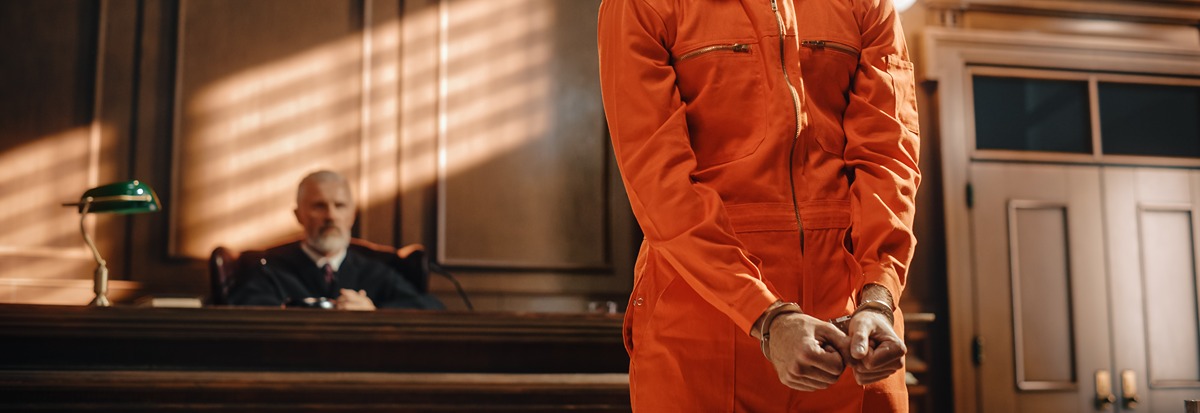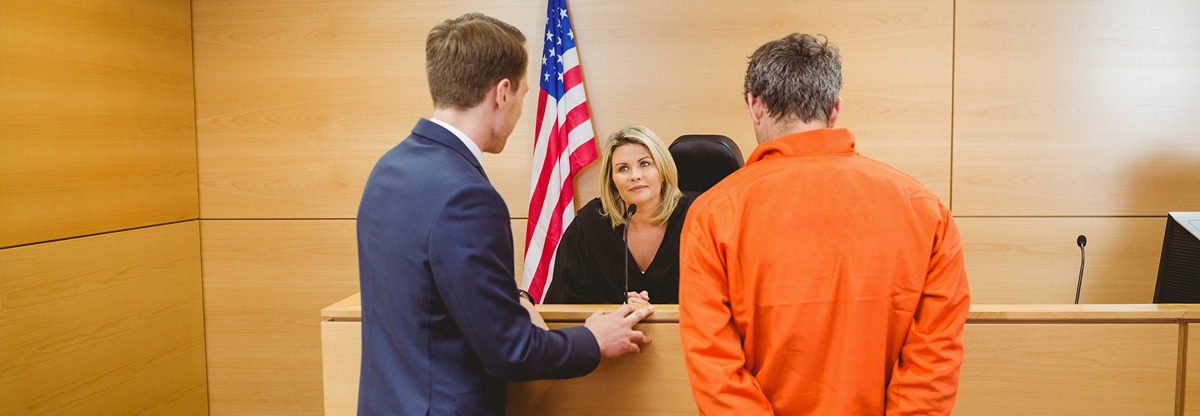Repeat felony convictions in Arizona can carry far more than just enhanced sentences — they can result in mandatory years in prison, limited eligibility for parole, and in some cases, life in prison.
If you or someone you love is facing a third felony or has prior convictions on their record, understanding how these laws work is essential. This article explains how Arizona punishes repeat offenders and how a skilled criminal defense attorney can help minimize the consequences.
Here’s what this article will cover:
- What is Arizona’s Three Strikes Law?
- Arizona’s Repeat Offender Sentencing Structure
- Which Crimes Count as a Strike Under Arizona Law?
- Penalties for Repeat Felony Offenses in Arizona
- Real-World Examples of Repeat Offender Cases
- Legal Defenses to Eligible Charges
- FAQs About Arizona’s Repeat Offender Laws
- Contact a Criminal Defense Attorney From the Law Offices of Daniel Hutto
At the Law Offices of Daniel Hutto, we know how prosecutors approach these cases, and we use our courtroom experience and negotiation skills to fight for reduced charges or alternative sentencing when possible.
How an Arizona Criminal Defense Attorney Can Help
Our Phoenix Criminal Defense Attorneys are Here to Help!
What is Arizona’s Three Strikes Law?
Arizona does not have a “Three Strikes” law in the same way some states like California do, where a third strike automatically results in 25 years to life. Instead, Arizona’s approach focuses on sentence enhancement based on prior felony convictions, especially for violent or dangerous felonies.
Under Arizona Revised Statutes § 13-703 and § 13-706, penalties increase significantly for individuals who commit new felony offenses after having been previously convicted of one or more prior felonies.
The goal is deterrence, but in practice, it can lead to disproportionately long sentences for individuals with past convictions — even if those crimes occurred many years ago.
For serious violent crimes, Arizona law requires courts to impose longer minimum sentences, and in some cases, a person may become eligible for natural life in prison without parole.
Arizona’s Repeat Offender Sentencing Structure
Arizona uses a tiered structure to enhance sentencing depending on:
- The classification of the current felony (Class 2 through Class 6)
- Whether the prior offenses were historical felonies
- Whether the current or prior offenses are considered “dangerous” or violent
- How many prior felony convictions exist
- The timing and nature of those priors
Under A.R.S. § 13-703(C), a person with two or more historical prior felony convictions who is convicted of a third felony may be classified as a “category three repetitive offender,” which drastically increases sentencing ranges.
Even a second felony conviction, if classified as “dangerous,” could subject the defendant to mandatory prison time with no chance of probation, pardon, or suspension of sentence.
Which Crimes Count as a Strike Under Arizona Law?
In Arizona, the term “strike” is not used in the statute itself, but the principle is the same: certain types of felonies increase punishment if they are repeated. Crimes that count as “historical prior felonies” under A.R.S. § 13-105 include:
- Any Class 2 or 3 felony
- Any felony involving a dangerous offense (use of a deadly weapon or infliction of serious injury)
- Any felony involving a child under 15
- Crimes involving sexual misconduct, such as sexual assault or sexual conduct with a minor
- Crimes committed within five years of the current offense
Even out-of-state convictions may qualify as strikes if they would be considered felonies under Arizona law.
Penalties for Repeat Felony Offenses in Arizona
The penalties for repeat offenses vary widely depending on the type of crime, the number of priors, and whether the offense is classified as dangerous.
Sentencing Table for Repeat Offenders in Arizona
| Felony Class | First Offense | Second Offense (One Prior) | Third Offense (Two Priors) |
| Class 2 | 3–12.5 years | 4.5–23.25 years | 10.5–35 years |
| Class 3 | 2–8.75 years | 3.25–16.25 years | 7.5–25 years |
| Class 4 | 1–3.75 years | 2.25–7.5 years | 6–15 years |
| Class 5 | 0.5–2.5 years | 1–3.75 years | 3–7.5 years |
| Class 6 | 0.33–2 years | 0.75–2.75 years | 2.25–5.75 years |
These enhanced ranges may increase further under A.R.S. § 13-706 if the offenses are classified as dangerous or violent.
Real-World Examples of Repeat Offender Cases
Example 1: A man with two prior felony drug possession convictions is charged with a Class 4 felony burglary. Because of the prior felonies, he is not treated as a first-time offender and instead faces 6 to 15 years in prison.
Example 2: A woman convicted of aggravated assault with a deadly weapon (a Class 3 dangerous felony) after having a prior conviction for armed robbery (also dangerous) may face 10 to 25 years with no probation eligibility under A.R.S. § 13-704 and § 13-706.
Legal Defenses to Eligible Charges
When facing a third strike or a repeat offense enhancement, defense strategy is critical. At the Law Offices of Daniel Hutto, we regularly use the following tactics:
- Challenging Prior Convictions
We examine whether prior felonies truly qualify as “historical” under Arizona law. If a prior is too old or not a felony under Arizona law, it may not count toward enhancement. - Pleading to a Lesser Offense
Through negotiations, we often seek to have charges amended to a lower class of felony or a non-dangerous offense to reduce exposure to enhanced penalties. - Disproving Dangerous Classification
If a crime is not proven to be “dangerous,” the defendant may be eligible for probation. We challenge whether weapons were truly used or whether injuries meet the legal threshold. - Constitutional Violations
If police obtained evidence through an unlawful search or seizure, it can be suppressed. This may lead to dismissal or leverage in plea negotiations. - Mitigation and Sentencing Advocacy
Even when a conviction is likely, presenting a strong mitigation package (rehabilitation, employment, family support) can lead to reduced sentencing or alternatives like probation.
FAQs About Arizona’s Repeat Offender Laws
⑴ What is a “historical prior felony” under Arizona law?
It is a previous conviction that qualifies to enhance sentencing, such as a dangerous felony or a Class 2 or 3 felony. These are defined in A.R.S. § 13-105.
⑵ Do prior convictions from other states count?
Yes, if the out-of-state crime would be considered a felony under Arizona law.
⑶ Can I get probation as a repeat offender?
Not for dangerous felonies. Arizona law prohibits probation for dangerous offenses under A.R.S. § 13-704.
⑷ What happens if my prior convictions were many years ago?
Some priors may no longer count depending on timing and classification. An experienced defense lawyer can evaluate whether enhancement applies.
⑸ How does a plea deal help in a three strikes case?
Plea deals can reduce charges to non-dangerous felonies or lower classes, which often means avoiding mandatory prison.
⑹ Is a life sentence possible under Arizona’s repeat offender laws?
Yes. Under A.R.S. § 13-706, a person with two prior violent felonies may be sentenced to life in prison.
Contact a Criminal Defense Attorney From the Law Offices of Daniel Hutto

Facing charges as a repeat offender in Arizona can feel overwhelming, but you don’t have to go through it alone. At the Law Offices of Daniel Hutto, we understand how prosecutors build these cases — because we’ve been on the inside. Daniel Hutto brings years of experience as a former Maricopa County prosecutor and now aggressively defends individuals facing enhanced sentencing under Arizona law.
We take a proactive approach to investigating prior convictions, building mitigation, and negotiating with prosecutors. Our firm offers free one-on-one consultations, and we serve clients across Maricopa and Pinal Counties.
If you are facing a felony charge with prior convictions on your record, call us today at 602 536-7878 to schedule your free case evaluation.












